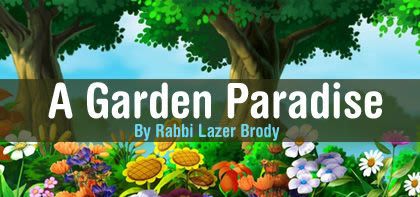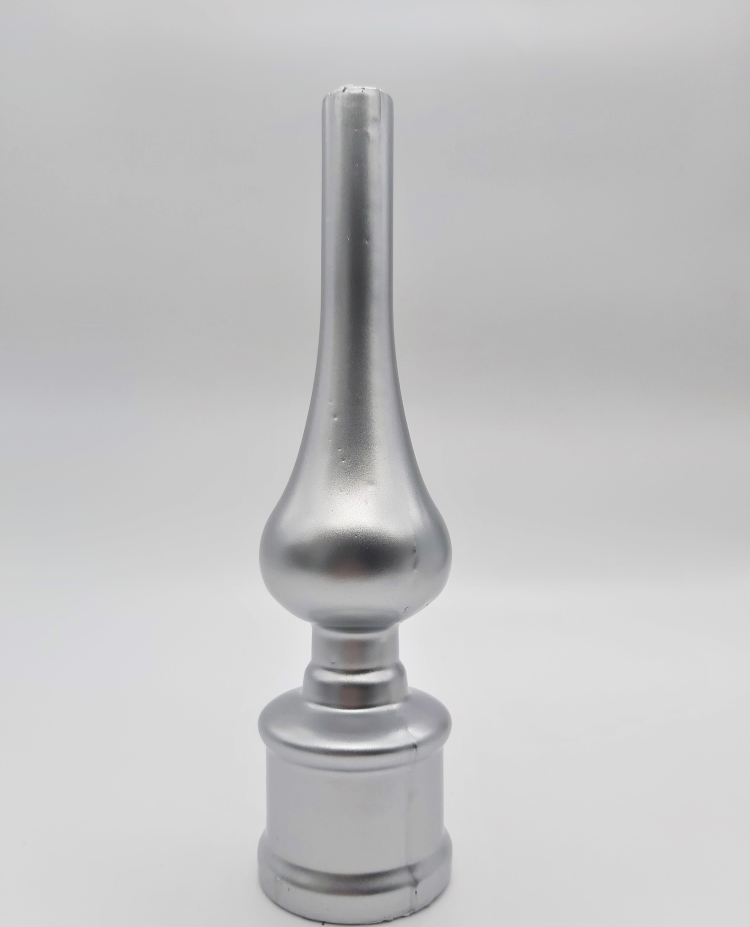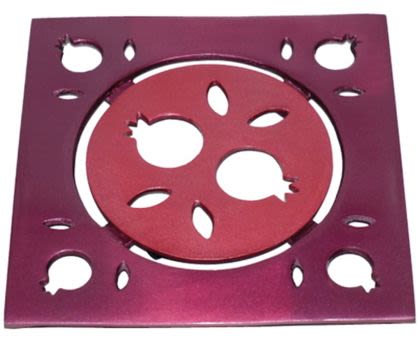
A Garden Paradise
Hashem requires us to depend on emuna rather than on logic; the ability to accept life's difficulties with love is not only limited to the select few...

Nachum Ish Gamzo earned his name because he always said gamzu letova, "this also is for the very best." People often protest and tell me, "Nachum Ish Gamzu was a holy Tanna, a sage from the era of the Mishna. He was Rebbe Akiva's teacher. How can a person nowadays be expected to be on his spiritual level? It's impossible to regard a tragic event as being for the very best!"
True, it's logically impossible. But since emuna overrides logic, with emuna, one knows – deep down in the soul – that everything is truly for the very best.
Jewish Law requires us to depend on emuna rather than on logic. Jewish Law also teaches us that the ability to accept life's difficulties with love is not only limited to the select few tzadikim of the world. This is actually a requirement in Judaism. The Code of Jewish Law states (Shulchan Aruch, Orach Chaim, ch. 222), "the [seemingly] bad for servants of G-d are their happiness and their credit; since they accept with love everything that Hashem decrees, they are thereby using these difficulties to serve Hashem with joy."
Stop and think of all the other daily aggravations that upset us. The teller at the bank refuses to cash a check. Someone is sitting in your synagogue seat. Your brand new washing machine is not functioning properly.
The choice is ours – to live our lives with emuna or without emuna, Heaven or purgatory. By accepting life's  tiny tribulations with love, we're doing ourselves the greatest favor in the world. The vicious jungle that this world often appears to be suddenly transforms into a tropical garden paradise.
tiny tribulations with love, we're doing ourselves the greatest favor in the world. The vicious jungle that this world often appears to be suddenly transforms into a tropical garden paradise.
Rabbi Yisrael Salanter of saintly and blessed memory was an immensely pious man, but a he lived a life of poverty. His wife once heated up some milk that they could barely afford; the milk came to a vigorous boil, overflowed, and spilled onto the floor. A person with no emuna would have likely yelled at his wife, "Stupid! Why are you so careless?" One can imagine how a bit of spilled milk could trigger a domestic war…
No, there was no war in the Salanter home. Rabbi Yisrael asked his wife, "Sweetheart, what do you think we did wrong to deserve the milk being spilled?" His wife pondered for a moment and remembered that she forgot to leave the payment for the milk in the prearranged hiding place for compensating the milkman. If the milk hadn't spilled, she would have forgotten to pay him entirely. Negligence in paying a debt is a serious violation of Torah. What's more, the milkman – out of respect to Rabbi Yisrael – might have been embarrassed to claim what's due. Then, the Salanters would have been guilty of swindling the milkman, G-d forbid. As such, they were happy that the milk spilled because it saved them from serious transgressions.
The Salanters' story has a happy ending because of emuna. Without emuna, little stories with happy endings become major dramas with tragic outcomes. Walking the path of emuna is like walking in a flowering botanical garden where one flower is prettier that the next. The path without emuna is a perilous jungle of negative emotions — snake-pits of anger, quick sands of depression, poisonous spiders of anxiety, and torturous nightmares. Isn't it better to choose the garden?
My beloved teacher Rabbi Shalom Arush says that the evil inclination is deemed "evil" because all evil and negative thoughts stem from it. Likewise, the good inclination is deemed "good" because all good and positive thoughts stem from it. How many times have we been in a situation, thinking the worst and expecting tragedy, only to be pleasantly surprised? And how many times have we suffered something seemingly bad, only to discover years later that it all was truly for the very best? By refusing to allow the snakes and lizards of negative thoughts to enter our minds from the outset, we save ourselves untold emotional wear-and tear, anxiety, stress, and worry for nothing. What's worse is that worry – stemming from lack of emuna, only makes life more unbearable for worry invokes stern judgments. Who needs it?
It's our choice – the jungle and the snake pits or the tropical gardens. I know where I want to go – you're welcome to join me. Life with emuna is even better than a tropical garden – it's paradise.











7/09/2014
fix the grammar/spelling Please give this article a professional proof-reading that it deserves. Example sentence that needs correction: "Rabbi Yisrael Salanter of saintly and blessed memory was an immensely pious man, but a he lived a life of poverty."
7/09/2014
Please give this article a professional proof-reading that it deserves. Example sentence that needs correction: "Rabbi Yisrael Salanter of saintly and blessed memory was an immensely pious man, but a he lived a life of poverty."